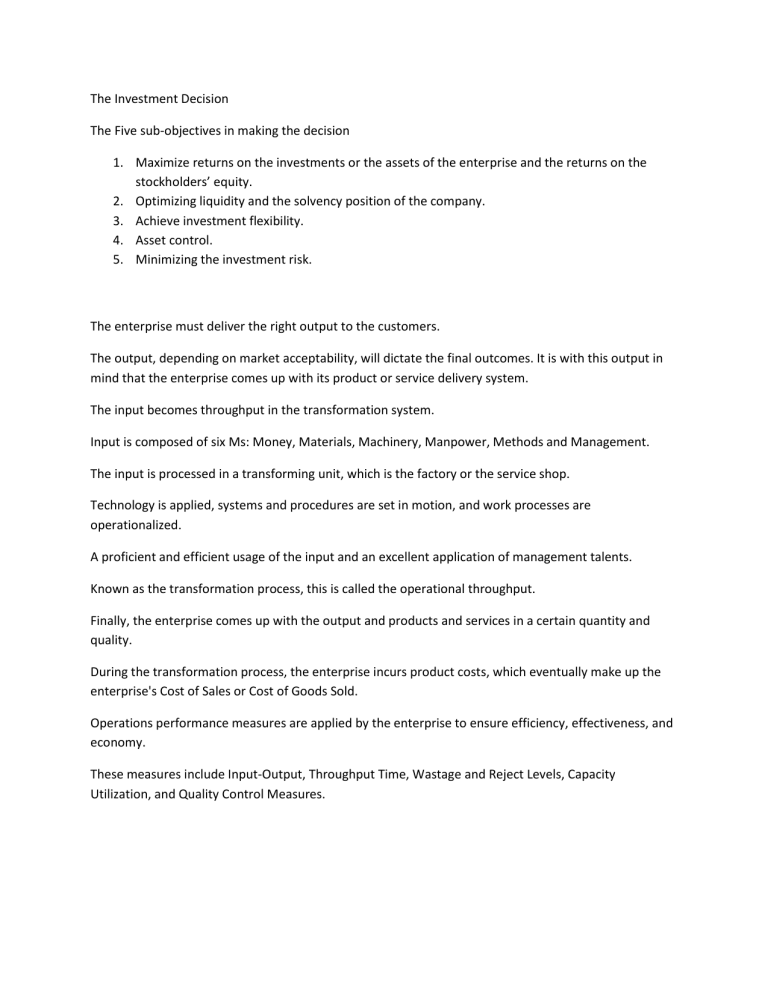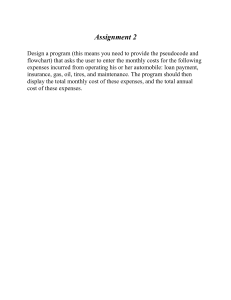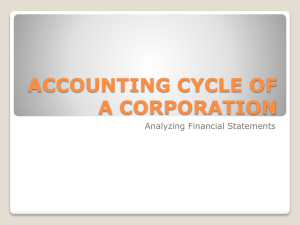
The Investment Decision The Five sub-objectives in making the decision 1. Maximize returns on the investments or the assets of the enterprise and the returns on the stockholders’ equity. 2. Optimizing liquidity and the solvency position of the company. 3. Achieve investment flexibility. 4. Asset control. 5. Minimizing the investment risk. The enterprise must deliver the right output to the customers. The output, depending on market acceptability, will dictate the final outcomes. It is with this output in mind that the enterprise comes up with its product or service delivery system. The input becomes throughput in the transformation system. Input is composed of six Ms: Money, Materials, Machinery, Manpower, Methods and Management. The input is processed in a transforming unit, which is the factory or the service shop. Technology is applied, systems and procedures are set in motion, and work processes are operationalized. A proficient and efficient usage of the input and an excellent application of management talents. Known as the transformation process, this is called the operational throughput. Finally, the enterprise comes up with the output and products and services in a certain quantity and quality. During the transformation process, the enterprise incurs product costs, which eventually make up the enterprise's Cost of Sales or Cost of Goods Sold. Operations performance measures are applied by the enterprise to ensure efficiency, effectiveness, and economy. These measures include Input-Output, Throughput Time, Wastage and Reject Levels, Capacity Utilization, and Quality Control Measures. In the production of goods and services, the enterprise also incurs General and Administrative Expenses. That include: Head office salaries and wages Rental payments Travel Representation and transport costs Maintenance Janitorial and security services and; Other overhead costs. Market Evaluation and Planning endeavors to bring the products or services to the marketplace successfully. This starts with the first P or Positioning Generates the second P or the Product Package (the third P) Price (the fourth P) People (the fifth P) Place (the sixth P) Promotion (the seventh P) The seven Ps combined, work to penetrate the market and attain a certain sales level, a wide enough market reach, and a sizeable share of the market through efficient and effective sales effort, which are the Market Performance Measures. The Sales attained enter the top line of the Income Statement. The Selling Expenses, which include the four Ps of marketing, enter the Operating Expenses along with the General and Administrative expenses


